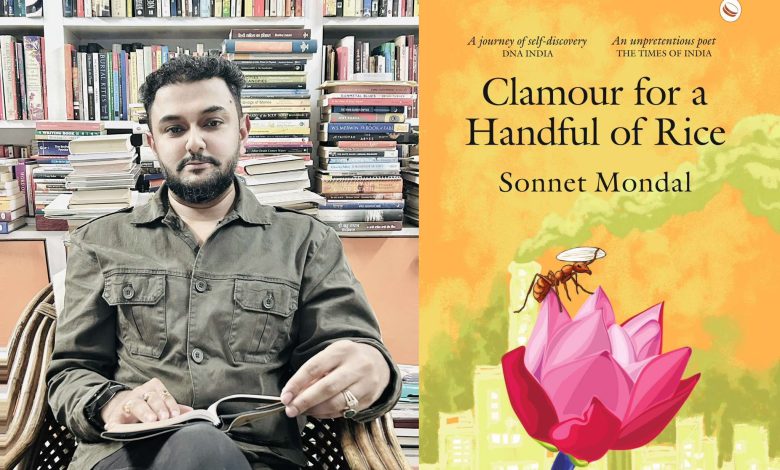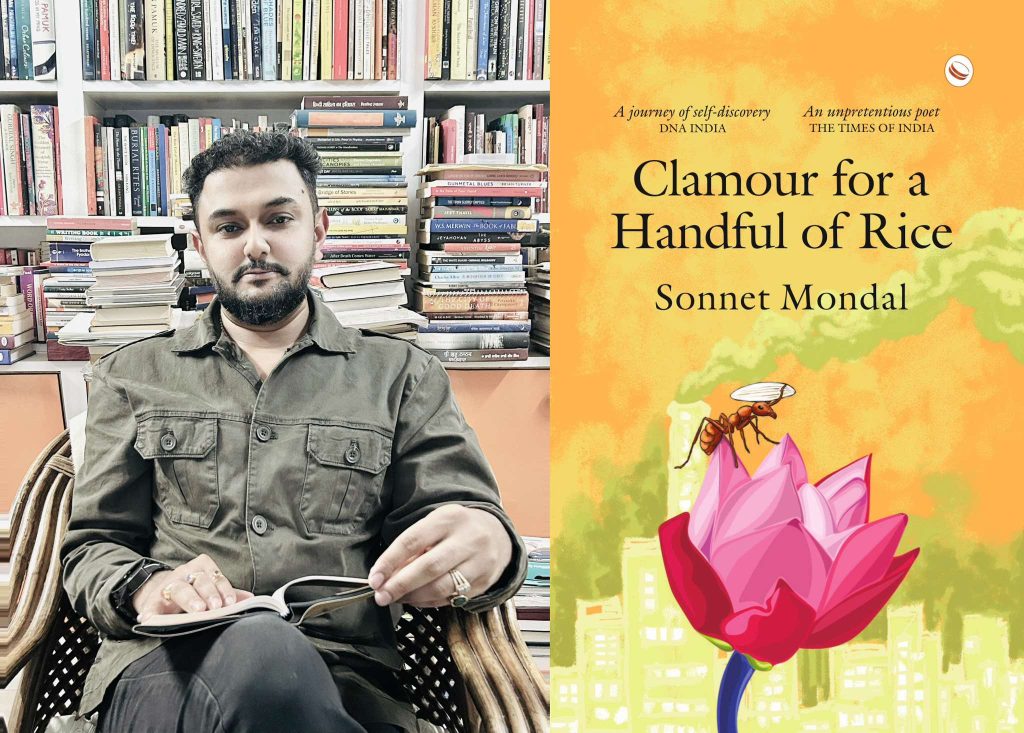
A Poetics of Hunger and Humanity — Review of Clamour for a Handful of Rice by Sonnet Mondal
by Sayantani Nandi
Sonnet Mondal’s Clamour for a Handful of Rice is a collection that resonates with the pulse of survival and the aching dignity of the marginalized. Written with stark lyricism and unflinching empathy, these poems trace the quiet desperation and resilience of lives often overlooked. Mondal’s voice, both intimate and political, bridges the personal and collective hunger that defines much of contemporary existence.
At its heart, the collection is a meditation on deprivation—not only of food but also of compassion, justice, and belonging. The poet turns the image of rice, a symbol of sustenance, into a motif for human struggle. Through sharp, economical language and visceral imagery, Mondal evokes the textures of daily endurance: “the rust of empty plates,” “hands still smelling of the last harvest,” or “children counting grains like prayers.” Each image carries both tenderness and accusation, compelling readers to confront uncomfortable truths.
 What stands out in Mondal’s poetry is his refusal to romanticize poverty. Instead, he distills it into a poetic realism that speaks with moral clarity and aesthetic restraint. His lines often move like whispered confessions that swell into collective outcries—a balance between sorrow and defiance.
What stands out in Mondal’s poetry is his refusal to romanticize poverty. Instead, he distills it into a poetic realism that speaks with moral clarity and aesthetic restraint. His lines often move like whispered confessions that swell into collective outcries—a balance between sorrow and defiance.
Clamour for a Handful of Rice reaffirms Mondal’s place among the most compelling contemporary Indian poets writing in English. It is a book that listens to the unheard, dignifies the ordinary, and transforms scarcity into song. In its quiet urgency, it reminds us that poetry, at its truest, remains a form of witness—a way of keeping empathy alive in a world of widening silences.



